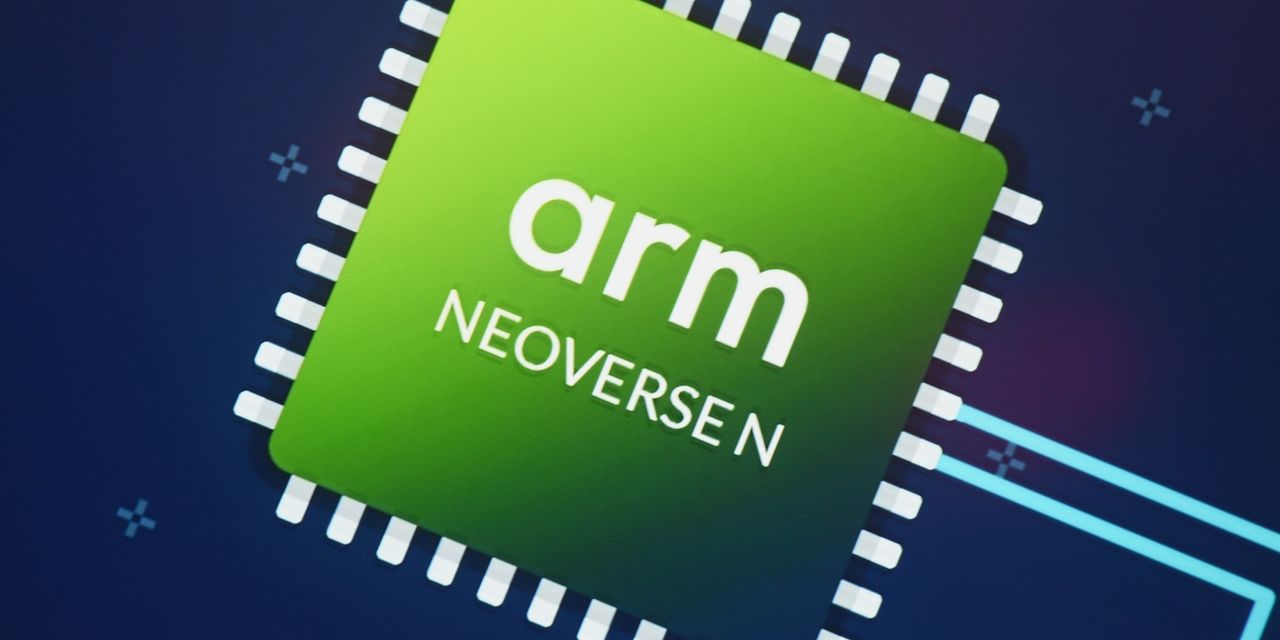
Nvidia Corp. and Japan’s SoftBank Group Corp. are abandoning a blockbuster deal for the U.S. semiconductor giant to acquire chip-design specialist Arm after regulators raised antitrust concerns.
The two companies said in a joint statement on Tuesday that they had agreed not to move forward with the transaction “because of significant regulatory challenges.”
SoftBank, which owns Arm, said that it plans to pursue a public listing for the U.K.-based chip business.
The U.S. graphics chip giant in September 2020 agreed to buy Arm for $40 billion from SoftBank in what would have been the chip industry’s biggest deal ever. The nominal value of the deal had risen along with Nvidia’s share price amid booming semiconductor demand.
The proposed deal quickly raised eyebrows with regulators and chip-making rivals. The Federal Trade Commission in December sued to block the transaction, alleging it would give Nvidia unlawful control over computing technology and designs that rivals need to develop their own competing chips.
The companies said SoftBank stands to pocket a $1.25 billion breakup fee from the failed transaction with Nvidia.
This isn’t the first time regulators have upended a massive chip deal. The U.S., in 2018, derailed Broadcom Inc.’s attempted $117 billion takeover of another chip giant, Qualcomm Inc., on national-security grounds. Qualcomm’s $44 billion purchase of Dutch chip maker NXP Semiconductors NV fell apart in 2018 when China failed to give its regulatory approval.
Arm, based in Cambridge, England, is one of the world’s most important behind-the-scenes semiconductor businesses. Companies such as Apple Inc., Qualcomm and Advanced Micro Devices Inc. rely on its design expertise for some of their chips, with Arm acting as a kind of Switzerland to the chip industry—offering its designs to everyone without favoring any one company. Nvidia and Arm had vowed that wouldn’t change if the deal went through.
SoftBank, which bought Arm almost six years ago for $32 billion, had struggled to jump-start growth in the business. Before agreeing to sell Arm to Nvidia, SoftBank had considered taking the business public. SoftBank plans to complete its revived plans for an Arm IPO before the end of its next fiscal year, which starts in April.
“We’ll go as quickly as we can,” said Rene Haas, Arm’s new chief executive. Mr. Haas, who joined the company in 2013, succeeds Simon Segars, who had been Arm’s CEO since mid-2013 and has been with the company for 30 years.
Details of the IPO plan, including where Arm shares will be listed, remain to be finalized, Mr. Haas said.
The U.S. isn’t the only jurisdiction where the transaction was facing scrutiny. Britain’s antitrust regulator last year began an in-depth investigation of the proposed transaction, citing both competition and national-security concerns. The regulator had previously said that Nvidia’s acquisition of Arm would lead to a realistic prospect of less competition, less innovation and more expensive products. China also had begun a review of the deal, as had others.
For Nvidia Chief Executive Jensen Huang, the proposed acquisition of Arm represented one of his biggest bets to expand beyond the company’s historic niche of making graphics processors used heavily in videogames and for artificial-intelligence calculations and cryptocurrency mining. It came in a year that Nvidia overtook Intel Corp. as America’s biggest semiconductor company by market value and only a few months after Apple said that it was ditching Intel in its Mac computers in favor of its own chip design with Arm ingredients.
More recently, Mr. Huang has his sights set on the so-called metaverse, a loosely defined group of online realms where users playing as avatars can hang out and participate in immersive experiences with others. Nvidia is offering software called Omniverse Enterprise that offers collaboration and simulation tools such as the ability to create interactive artificial-intelligence avatars.
SoftBank said Arm had enjoyed two years of strong business momentum, driven in part by demand for chips featuring the company’s designs and used in cloud computing, automated driving and other applications. Mr. Haas said that with the uncertainty over the Nvidia transaction now resolved, Arm was set to pursue a growth strategy.
Mr. Huang said Nvidia would continue to work with Arm as a licensee.
Write to Robert Wall at [email protected]
Copyright ©2022 Dow Jones & Company, Inc. All Rights Reserved. 87990cbe856818d5eddac44c7b1cdeb8








